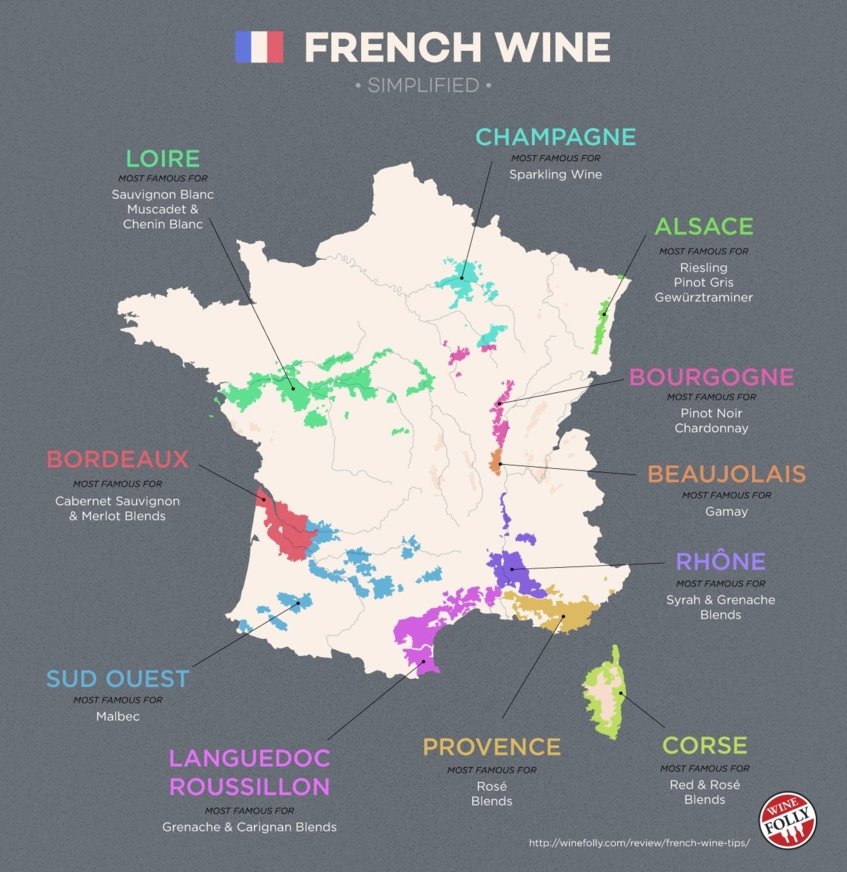Luxury Wine Tours & Tastings in France
Discover the best of French wine with our luxury France wine tours and tastings. From the world-renowned vineyards of Bordeaux to the picturesque Loire Valley, a wine tour in France offers a unique blend of culture, history, and exceptional wine. Whether you're looking for French wine tours or a private France wine trip, these experiences cater to all preferences and ensure a memorable journey.
Explore the charm of Vineyard France with a guided France wine tour through the rolling hills and historic estates, where you can sample the finest wines amidst breathtaking scenery. Our wine tasting in France is designed to give you an authentic taste of local varietals and a deeper connection to French wine culture.
Combine Tours for private full and multi day packages
Our combine tours provide flexible options for private full-day and multi-day packages. These tailored experiences allow you to explore multiple wine regions on your France wine trip, enjoy exclusive tastings, and stay in luxurious accommodations. Whether you're interested in a full day in the Rhône Valley or a multi-day exploration of Bordeaux, our France wine tours offer unmatched flexibility. These tours are perfect for anyone looking for an immersive wine trip in France.
Wine Tasting Tours in France
Full-day France Tours
Explore the beauty and diversity of French wine with our full-day France wine tours. Visit top wineries, learn about the winemaking process, and enjoy tastings of the finest French wines. A typical day tour might include visits to the famed vineyards of Saint-Émilion and Pomerol or a wine tasting in France in the Côte de Beaune region.
Multiple Days France Tours
For a deeper dive into French wine culture, consider our multiple days France winery tours. These extended trips allow you to visit a variety of wine regions, from the Bordeaux wine estates to the rolling hills of Châteauneuf-du-Pape. Explore historic vineyards, stay in charming local accommodations, and savor meals at top local restaurants. A French wine tour of this nature provides a deep and fulfilling experience, perfect for wine enthusiasts looking to immerse themselves in the world of French wine.
Food Tasting Tours in France
France isn't just about wine—it's a gastronomic paradise too.
Champagne: Indulge in Champagne's culinary delights like coq au vin de Champagne and tarte au maroilles, perfectly paired with the region's renowned bubbly.
Bordeaux: Savor Bordeaux's specialties such as entrecôte à la bordelaise and canelés, paired with the region's iconic red blends.
Burgundy: Enjoy classics like boeuf bourguignon and escargots de Bourgogne, perfectly matched with Burgundy's exceptional Pinot Noir and Chardonnay.
Rhône Valley: Delight in dishes like daube provençale and ratatouille, paired with the bold wines of the Rhône Valley.
Loire Valley: Experience the diverse flavors of the Loire Valley with rillettes de Tours and tarte Tatin, accompanied by crisp white wines and elegant reds.
Our food and wine tasting tours in France offer a delightful journey through the country's culinary landscape, perfectly paired with its world-class wines.
Full-day France Tours
Reiterating the importance of full-day France wine tours, these experiences allow you to immerse yourself in a specific wine region, such as the Rhône Valley or the Loire Valley. Each tour includes visits to multiple wineries, tastings of several varieties of wine, and often a gourmet lunch at a local restaurant.
Historic Tours
Delve into the rich history of French wine with our historic tours. Visit ancient vineyards, learn about the heritage of French winemaking, and explore historic sites such as the Châteaux of the Loire Valley or the medieval town of Beaune in Burgundy. Our France winery tours also offer historical insights that make each visit even more special.
Family Focused Tours
Our family-focused tours are designed to be enjoyable for all ages. These tours include activities for children, such as grape juice tastings and educational vineyard walks, ensuring that the whole family can enjoy a wine trip in France. These tours are perfect for introducing younger members of your family to the magic of French wine tours.
Wineries to Visit in France
France is home to some of the world's most famous wineries. Must-visit wineries include:
Best Accommodation Options in France
Stay in style with our recommended accommodations, ranging from luxurious châteaux to charming bed-and-breakfasts:
Best Restaurants in France
Experience the best of French cuisine at these top restaurants:
Cruise and Train in France
Explore France in a unique way with our cruise and train tours. River cruises along the Seine or Rhône provide scenic views and stops at key wine regions. High-speed train travel, such as the TGV from Paris to Bordeaux, offers a quick and comfortable way to explore different areas. These cruises and train rides are the perfect complement to any French wine tour.
More Information About France
Things to Do in France
Beyond wine tasting in France, France offers a wealth of activities:
- Visit the Notre-Dame de Reims, a UNESCO World Heritage site
- Explore the historic streets of Lyon, known for its cuisine and wine
- Take a walking tour of Paris, the city of lights and renowned wines
When is the Best Time to Visit
The best time to visit France for wine tours is during the harvest season in late September to October. This period offers vibrant vineyard landscapes and the chance to see winemaking in action. Spring and summer are also excellent times to visit, with warm weather and lush vineyards.
How Long to Stay
To fully appreciate a wine trip in France, plan to stay at least three to four days. This allows enough time for several winery visits, gourmet meals, and exploring the charming towns and countryside.
How To Get There
France is well-connected by air, train, and road. Major airports in Paris, Lyon, and Bordeaux provide easy access. The TGV train network offers quick and comfortable travel between cities, such as the 45-minute journey from Paris to Reims.
The Various Wine Regions Of France
France's diverse wine regions each offer something unique:
- Bordeaux, Saint-Emilion and Pomerol Regions: Famous for its red blends, particularly from the left bank
- Burgundy: Known for Pinot Noir and Chardonnay, including Côte de Nuits and Côte de Beaune
- Rhône Valley: Home to Syrah and Grenache, including Châteauneuf-du-Pape
- Loire Valley: Renowned for its white wines, including Sancerre and Vouvray
A Look Into France
France's wine culture is steeped in history and tradition. From the influence of Benedictine monks in the Middle Ages to the modern-day classification of Cru Classé wines, French wine has a storied past that continues to shape its future.
You May Also be Interested in
For a truly personalized experience, consider booking a tailor-made tour. Local experts can craft itineraries that cater to your specific interests, ensuring an unforgettable visit.
Book a Tailor-Made Package with our Local Experts
Why Book with Wine Paths ?
Wine Paths offers curated tours designed by local experts, ensuring authentic and immersive experiences. With their in-depth knowledge and connections, you’ll gain access to exclusive tastings and behind-the-scenes tours not available to the general public. You just need to contact our team and give us your travel dates !
Stay updated with the latest news, special offers, and travel tips by subscribing to our newsletter. Whether you're planning your first trip or your next visit, our insights will help you make the most of your French wine experience.
Embark on a journey through France, where each sip tells a story, and every visit creates lasting memories. Cheers to your next adventure in this vinous wonderland!Stay updated with the latest news, special offers, and travel tips by subscribing to our newsletter. Whether you're planning your first trip or your next visit, our insights will help you make the most of your French wine experience.






.png)











